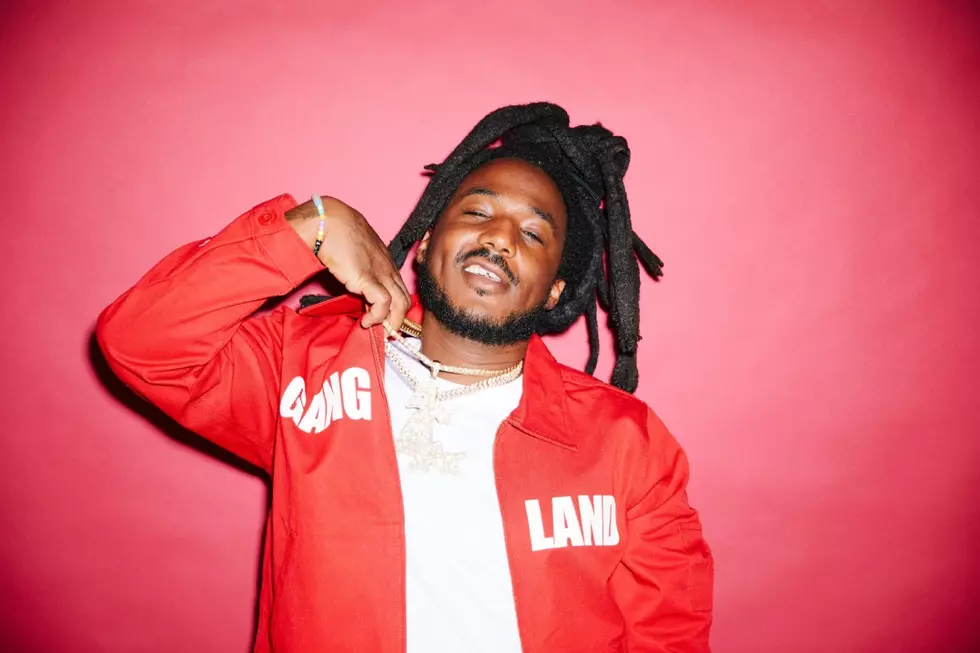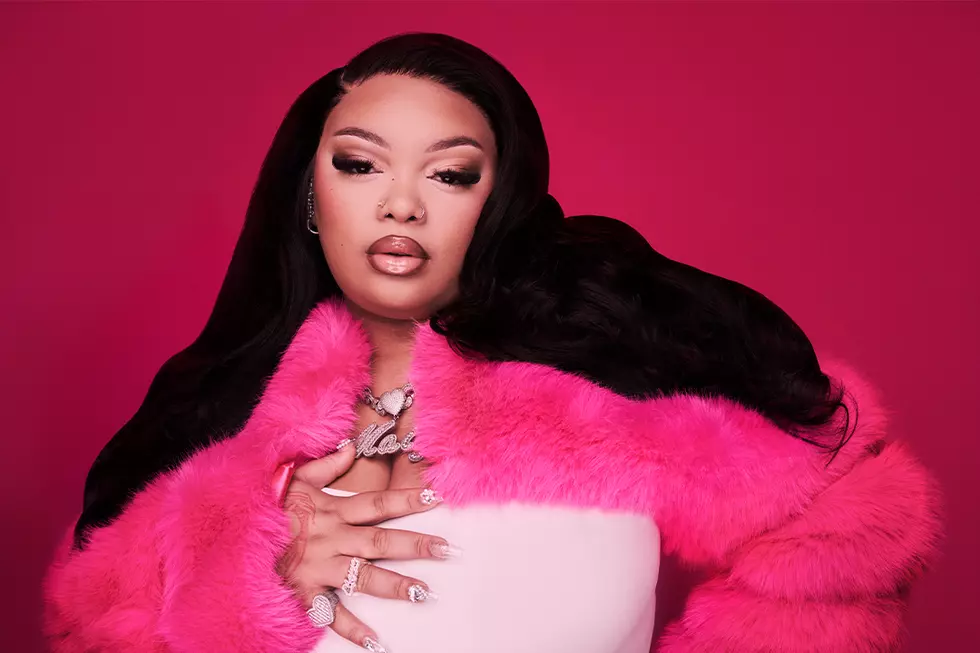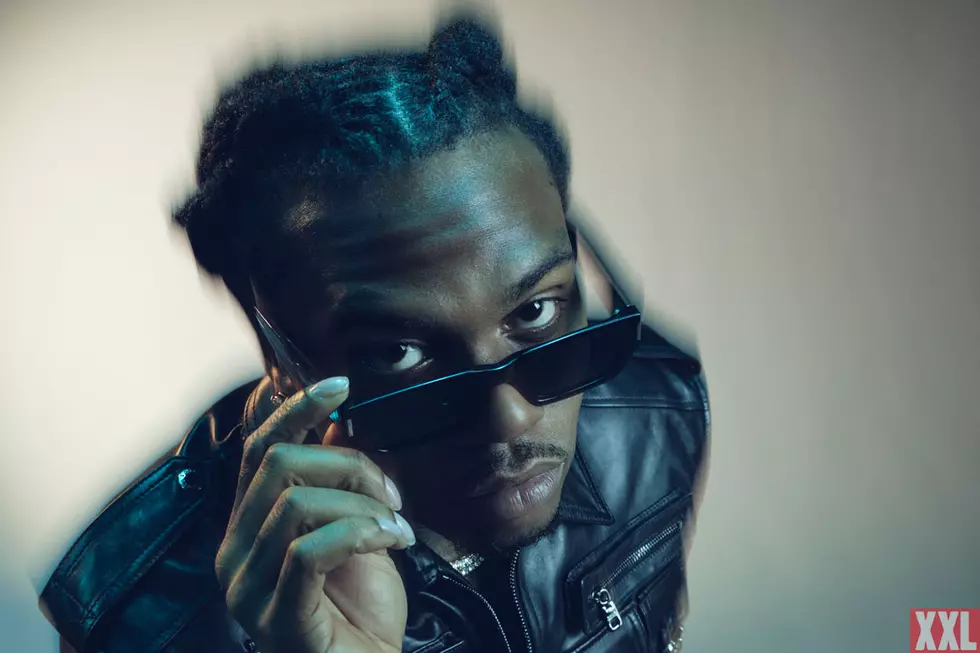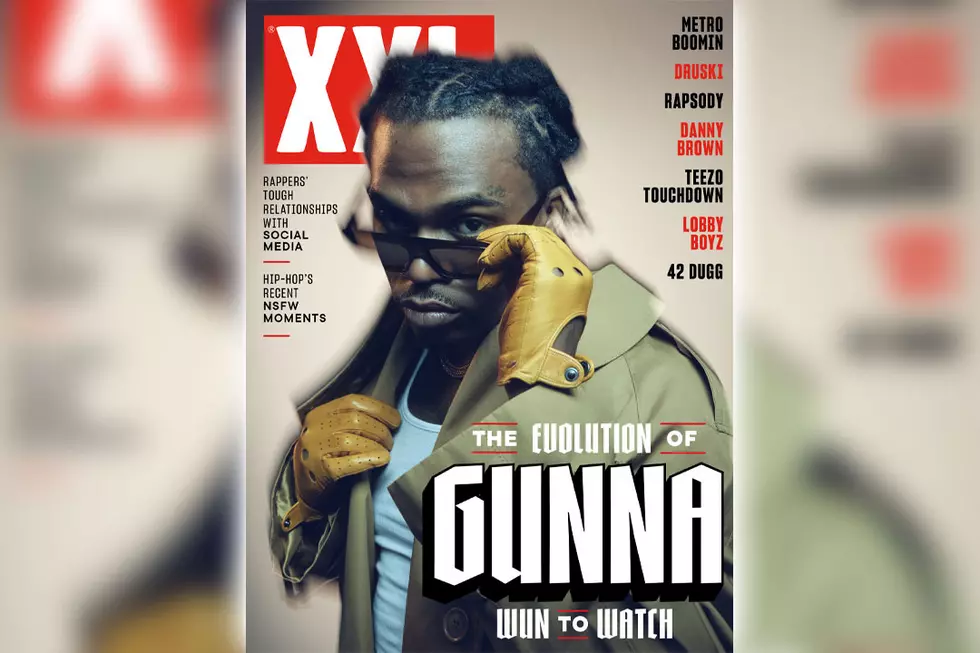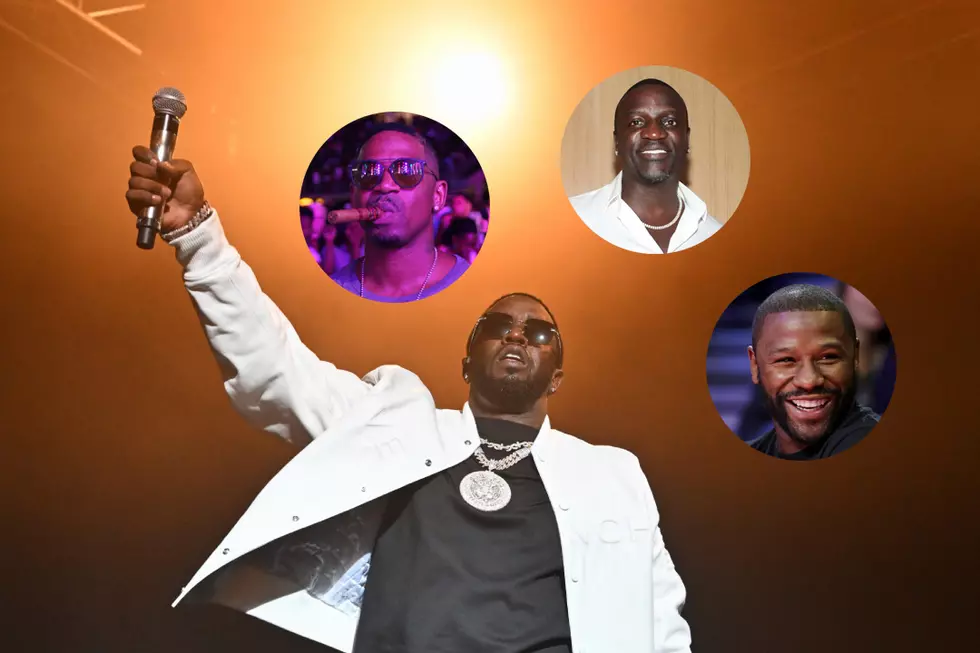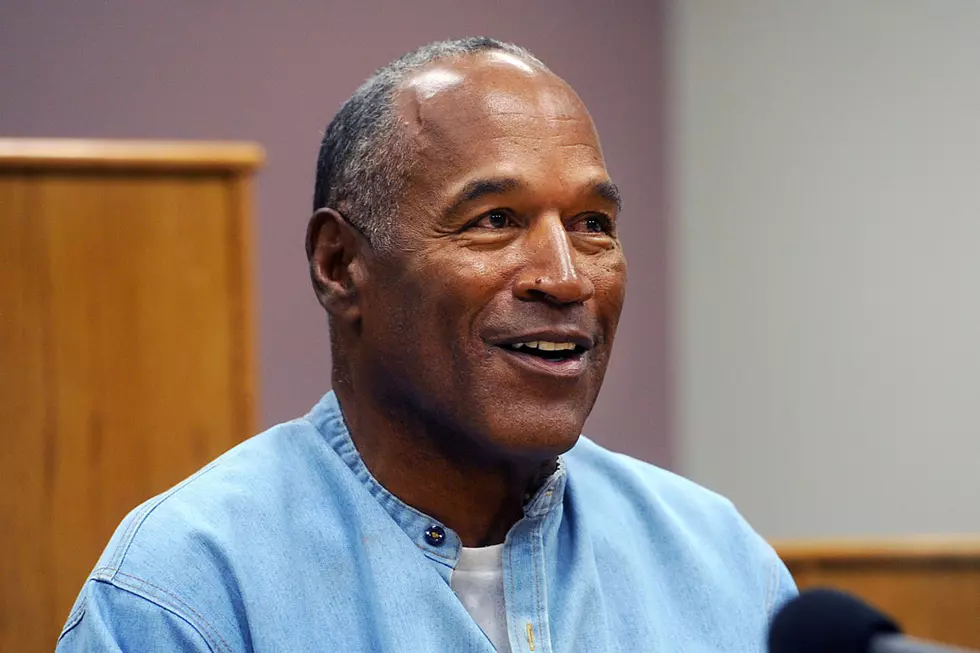
The Making of Cormega’s ‘The Realness’
If New York is the mecca of hip-hop and the Bronx is the birthplace, then Queensbridge is the Hall of Fame. Home to Nas, Mobb Deep, Tragedy Khadafi and other rap legends, QB has always bred a special strain of rappers, often tripling up their syllabic rhyme patterns within one bar. Their writing seems impeccable, born from years of studying mic technicians like MC Shan and Craig G, but despite being a beacon of rap talent, infighting kept that region from exerting power over time.
Cormega was a victim of that infighting. In 1989, he made his first appearance on wax before getting locked up in 1992 and coming home in 1995. Soon after, his neighborhood friend Nas put him on a track called "Affirmative Action," which turned heads in the industry. Mega had secured a deal with Def Jam prior to being on It Was Written and soon began releasing singles like "Dead Man Walking" and "Angel Dust." He even joined Nas, Foxy Brown and AZ to form The Firm and do an album produced by Dr. Dre. His second life after prison seemed promising.
But then it came to a screeching halt. He separated from The Firm before their album dropped, had his original debut album The Testament shelved at Def Jam and found himself in limbo, signed to a label that didn't want to release his music. One of the most anticipated rappers of the 1990s was a prisoner to a contract, and he stayed that way for years.
Until 2000, when he was able to leave Def Jam and set upon crafting his first official album release, The Realness, after two stalled careers. He released the LP independently in 2001, hitting No. 1 on the Billboard Heatseekers chart for two weeks in a row. The critically acclaimed LP helped Mega start on a path of top-notch album releases, from True Meaning to Legal Hustle to his original debut. To this day, Mega is revered as one of the greatest lyricists the game has ever seen.
So to celebrate the 15th anniversary of the classic album, The Realness, XXL speaks with Mega and producers like Alchemist, J-Love, Havoc and more about how they put together this insane LP.
Builders:
Cormega
J-Love
Havoc
Sha Money XL
Jae Supreme
The Alchemist
Background
Cormega: "TVT Records was gonna do The Realness album and I wanted to do a label situation, a partnership, but they were offering me a deal. They told me if The Realness did well, they’d give me a label deal for the follow-up project. So Landspeed Records had the capability of making the album come out within a few months. July was the set date for The Realness and we signed the deal in like April or late March, so my back was against the wall and I wanted to have an album out for the summer.
"On TVT, there was no guarantee my album would come out because when you deal with labels, they have schedules for how they market and put out an album. Landspeed was guaranteeing my album would come out in July and with TVT, I’d have to do the schedule thing, plus TVT was offering me a deal as opposed to a partnership venture, so I went with the Landspeed thing and I did The Realness in like two weeks. If you got a copy of each session sheet, it would add up to about two weeks.
"They gave me $15,000 for the album and that shit sat in my bag for months, I didn’t even put it in the bank. I showed it to the guy from Landspeed when we were on the road, like, 'See? I ain’t thirsty for money. I ain’t even spend that money you gave me.' And he was like, 'Oh my God. You better put that in the bank before it bounces.' And he started laughing."
DJ Kay Slay: "Cormega would come to 118th Street and 1st Ave., that's when I was still in the hood, tenement building third floor by himself, sit there and vibe for a while and the track going on and he’d spit. There’s times where I might have linked him up, with a Black Rob came through, McGruff, Sporty B or whoever it was, when I throw that beat on and he’d get that vibe, he’d get up and spit and he wouldn’t bow down to nothing. He was always the greatest to me, when it came to being a true lyricist to the game, I kind of felt like he was overlooked, because the glamour and glitz starts kicking in, the big diamond chains and the jewelries, and the Bentleys, but he wasn’t really into all of that. He was always down to earth with the hip-hop culture. He definitely came uptown all the time and to my crib and laid his freestyles, open up intros, the mixtapes, everything."
J-Love, producer: "He was pretty much walking away from [rap]. I definitely was one of the driving forces behind him. A lot of people in the industry had turned their back towards him at that time, due to his vibe with Nas and Nas being the more popular artist. I mixed most of that album, I sequenced that album. The only one he chose was 'The Saga,' I wanted to put that later on the album."
Recording Studio
Cormega: "Hydra Studios was the main place where I recorded, that was the hub. Ninety percent of The Realness was done in Hydra. 'R U My Nigga?' was done in Queensbridge, in Jae Supreme’s apartment, and 'The Saga' was recorded down South, unless we re-recorded it in New York, but I believe I did it down South. Everything else was done at Hydra, except for the songs that were done before that, 'Killaz Theme' and 'They Forced My Hand.'”
Songs
1. "Dramatic Entrance"
Cormega: "The feel of it, the melody and the energy just felt perfect for an intro. I just wanted to vent, but I also wanted to express my story. I wanted to come from a street perspective. This is my first album, so the intro had to be flawless, it had to grab people’s attention. I remember taking it real serious and I remember being real happy with the lyrics after it was done.
"I had a chip on my shoulder from the Def Jam situation and for the industry, from people that were in power and trying to shut doors on me. It was like fuck that, I’m coming. Everything y’all ever did to try and stop me… fuck it, I’m here. I didn’t know what was going to happen with the album. I just knew I had to get some shit off my chest."
J-Love: "I was working on my compilation album and I was always a fan of Cormega since I heard him on records like 'On the Real.' I was getting a lot of exclusive Cormega records and I got one that was unfinished with Mega and Pun. And I had played it and I remember him telling people he was looking for me, like, 'This guy's always playing my shit,' and so on. And then when I met him at N.O.R.E.'s record label Penalty, we just built and I told him I wanted him on my album. So we just clicked.
2. "American Beauty"
Cormega: "That was inspired by Common Sense. I was freestyling with him on Future Flavas one day and I told him I loved that song 'I Used to Love H.E.R.' and I was gonna do a tribute song like that. I don’t know if he remembers or if he thought I was joking but I was dead serious because I really respected what he did with that song.
"It was also in a Mega way, an edgier way. I wanted to be a little more descriptive and that was also the first song I ever produced that came out. I knew where I was going with it because I knew the sound and I knew everything about the song because I came up with the idea and the concept and everything, so I wanted it to be magical. That’s one of my favorite songs. I perform that at every single Mega show."
3. "Thun & Kicko" Featuring Prodigy
Cormega: "Havoc is one of the most talented producers I’ve ever met in my life because Havoc is such a perfectionist. There’s times where he does tracks and he’ll be like, 'I don’t like the beat' and he’ll totally erase it. We call it throwing it in the garbage, meaning it’s outta here, you’ll never hear that song ever. The shit he’s thrown away is better than some producer’s catalogs.
"So when I found out he was about to trash 'Thun & Kicko' I pleaded with him to get that, please, please, please. The Prodigy verse was already on it and that was prior to The Realness coming out so any speculation about Prodigy [going at anybody] is false. I had that over a year before The Realness came out.
"I had some beats from Havoc [recently] and one of the beats he played for me that I should have picked ended up on Kanye’s [The Life of Pablo]. It’s definitely not 'Real Friends.' It’s the other one ['Famous']. I felt kind of stupid, but at the end of the day I don’t feel that stupid because everything ain’t for everybody."
Havoc: "I was just playing him some joints and when I played him that joint he felt it immediately and I just be happy for niggas to be liking anything that I make. So when he was feeling I was like bet and I gave it to him.
"Me and P used to do a bunch of songs. It probably was something that we just did because we always work even when we not working on an album. So it was probably a song we just did, just had it on the side, just laying there. Probably nobody would’ve never heard it if nobody would’ve used it."
4. "The Saga"
Cormega: "A very powerful song, very cinematic. It just takes you there. You can feel the ghetto in that song. That’s another song I’m proud of. I wrote that in South Carolina and there was no heat on that day at all. I just put my blood, sweat and tears into it. The fact that there was no heat on and it was the middle of winter and I’m freezing, it just made that struggle come to mind. So that song was made from creativity and struggle.
"I put on a mink, fuck it, because a mink is warm as fuck. So I’m sitting there in a mink coat writing 'The Saga' with K.L. from Screwball writing his own rhymes. Sometimes we’d just get together and have vibe sessions, get right and inspire each other. He’s writing his shit, I’m writing my shit, it’s quiet in the room and we’re not bothering each other. I don’t know what the fuck he’s writing, he don’t know what the fuck I’m writing. Even though it was freezing, it always feels beautiful that K.L. was there. He even talked at the beginning of 'The Saga.' We were very close.
"I met [producer] Big Ty through my man 40, God bless the dead. 40 was one of my close friends and he introduced me to Ty and then I went to Ty’s house and we started vibing. I just wanted some different shit, I didn’t want the typical shit you hear from a New York artist. I wanted something that resonated with different states, so that beat just had a certain feel to it that I knew people from other states as well as New York would like it."
5. "R U My Nigga?"
Cormega: "That’s just a real song. Every street person in the world likes that record. I think there are people that hate my guts but like that record, that’s how real it is. Even people that aren’t from the street love it because they relate.
"I just wrote that because I had a lot of questions about myself, my life, circumstances and situations and the circle I was in. So I was asking these questions to myself about my friends, like would these dudes do this? I was just reading people’s body language and the way I was feeling just spilled into that song. That was a real honest song."
6. "Unforgiven"
Cormega: "I just wanted it to be gutter. There’s a certain raw Mega that people used to really like. Even now people say they wish I would do some shit like that and be that raw person, but I’m not that person anymore in life. I wanted that record to be hard and I’d already released a hard edge song, but I wanted something new that no one ever heard, so that’s what 'Unforgiven' was.
"That was a raw fucking record. The producer’s name isn’t actually Spank Brother, it’s Gold Fingas. What happened was at the time he didn’t have a producer name back then, and The Realness was a rushed album, so the credits and the artwork needed to be turned in early because it takes a certain amount of time for the album to get printed. So I needed a name for him and at the time he ain’t have no name. I was trying to get in touch with him but I couldn’t so I didn’t know what to do.
"So Spank’s brother produced it…it was the last day to turn the album in and we still didn’t have a name for him yet, so I was like fuck it. Put Spank’s Brother because that was my man Spank’s brother. So that’s how that name got on there. And when I do the sequel to The Realness, I’m gonna try to bring every producer that was on the first one on the sequel, so when he appears on the sequel, God willing, he’ll be Gold Fingas."
7. "Fallen Soldiers"
Cormega: "That’s a very emotional tribute record to me. I did it to pay homage to some people that stayed in my mind after they passed and it was hard to get over. My man Yammy, my cousin Bam, we were inseparable. My man Spank. It’s funny, I did the song, I mentioned Spank on the remix, his brother produced on the album, and at the beginning of 'Glory Days' that’s Spank. So Spank’s presence is on that album. That’s what’s deep about The Realness. That album wasn’t just me, that album was people’s voices.
"My man Blue -- I mentioned him too, he was one of my biggest allies -- is a big reason why I did The Realness because when I was in the streets, he told me, 'Don’t forget, you’re a rapper. You can rap. Don’t let this shit consume you. Make music.' And after he got killed, those words haunted me, and I didn’t know what was going to happen after The Realness, to be honest with you. I didn’t have a set plan. So basically that album was like a tribute to my man Blue and Spank.
"I did the remix also because more people died during the time of recording The Realness. When I first made 'Fallen Soldiers,' at least three more people who were very important in my life died after that. When I first did those songs they were from a creative perspective, but as time went on they became more emotional for me.
"It’s very hard for me to perform those songs now, even though I do. I don’t do both of them, I only do one of them and it’s real emotional for me. So that song is a double-edged sword."
8. "Glory Days"
Cormega: "I just wanted to give a perspective from the trenches versus the journalistic perspective. A soldier’s story reporting from the field. So that’s the glory days, I’m telling you about the streets, as I knew them, as I seen them, as I was there. That was a special record to me and I just wanted to shout out people in the game that influenced me from that angle.
"I’m from the streets so most of the people I name on the record know me. I was there and people respect that. I say, 'Black Ratti was the richest nigga in my building.' That’s true. When I was making The Realness, Ratti was out of the game, he wasn’t active, and he was doing that years prior. He was more happy than anything. When he sees me, he likes that quote. People I shout out in different boroughs, I know them.
"That’s one of the things that makes me different from a lot of rappers. If I wasn’t a rapper, I’d still be a street legend. The way people speak of me in the streets, I didn’t even have to be a rapper for my name to resonate. When people heard about me first, they didn’t even know I was a rapper. People from the streets identify with that, but I would never incriminate nobody. Like if someone’s active and they’re doing something big, I’m not gonna put their name in no song or make a song about them because that’s not cool."
Jae Supreme, producer: "I remember he got the deal with Def Jam and I had the beat already. I gave it to Mega awhile before the deal. I don’t think he’d finished the song yet, but after he got the deal that’s when he called like, 'Yo we gotta do this one.' So he set up the session and I went over there to lay the beat. We laid the beats for 'Dead Man Walking' and 'Glory Days' at the same time.
"He changed the title of this song from when we originally did it. The title when we first did it was 'Remember When.' I don’t know why he changed it. I’m thinking he changed it because when the deal with Def Jam was finished, maybe he wanted to have a different name for it. But if you listen to the song, right before the chorus, he always says, 'Remember when.'"
9. "Rap's a Hustle"
Cormega: "I believe Ayatollah could have been so much bigger as a producer. Some people just have this touch that the way they do something, nobody does it like them. And he’s one of those people, he’s got his own lane, the way he does his soulful shit, it’s just crazy. So when he flipped that record, it just felt perfect and I just wanted to be creative and have some fun, so that was the perfect joint. That was a great experience to work with him."
10. "Get Out My Way"
Cormega: "That was for the industry. I didn’t see Def Jam as my main adversaries, I saw them as chess pieces on the board that I had to overcome. When I got my release from them, I was content -- and I got paid too. My issue with them was when they wanted $350,000 to get The Testament back. That’s what my issue with them was, because that was basically trying to sabotage me and stop me from getting on.
"'Get Out My Way' was for everybody. There were a lot of people that were trying to stop me from getting on, a lot of funny business, so that was for everybody.
"I don’t even deserve any credit for that shit because Sha Money XL did the beat and he coached me through that shit. I would say a rhyme and he’d be like, 'Do it with this energy.' There’s a certain Mega that’s like the raw Mega and then there’s the storytelling Mega. He’d be like, 'Don’t be that Mega, be this. Be that energy nigga, almost mad aggressive, assertive.' I had to do my vocals over, shit that I wasn’t accustomed to because I was doing what the fuck I wanted on The Realness. There weren’t no A&Rs, so basically every song was the way I wanted it.
"He made it an orchestra, he made that shit triumphant. The way it starts off and everything, it’s big, it’s monumental. Whatever kind of rhyme I said on there, it’s because of Sha. He probably told me this is the rhyme for that and so on. There wasn’t no choices, like producers give you options, like 'yo listen to these beats.' He was like, 'This is the one, Mega! This is your song. This is it. Point blank.'”
Sha Money XL: "I did the beat at my crib in Westbury and that was around the time where I had a heavy Primo influence, that I wanted my track to have some kind of hook in it. That was before writers would come and do hooks and lay them in your studio. So I was being more creative. I was a DJ, I had a whole bunch of a cappellas, and I took this record from Roc-A-Fella and Memphis Bleek was saying something and I liked it and I just cut it and I sampled myself cutting it.
"That was the era where I wanted to have this orchestra kind of sound going on and make it big. When I found that sample, I just put it together with that hook and that sample. I think Mega was recording at Hydra Studios in Long Island City and we got in a conversation and he like was like, 'You got some heat, bro' and I came through and pressed play for him and he jumped right on that joint. That’s before we emailed tracks, there was no mp3, I didn’t know how to mp3 until 2002. That was pull up on the artist and press play. He loved it.
"That’s when I was still defining my sound, so I was pulling from everybody from Primo, from Just Blaze. I had a lot of things going on at the time. Creatively trying to figure out the best way to make my mark, and I was pulling from people and that record was one of my favorite beats, nothing out there was like it. I remember mixing it with his engineer, Max Vargas, he killed the mix and he made my beat sound even crazier. It wasn’t about the money, I was just trying to be a part of his legacy. I was just trying to outdo everybody and make my mark.
"At that time I was doing Beanie Sigel’s album and I was starting to work on 50 [Cent]. I had 50 Cent in my crib so I was just coming with it, really defining myself as a producer. I think I was still Sha Self but I was transforming into to Sha Money because there was another producer named Self was coming into the game. He was an OG from my hood, and he started doing a bunch of Onyx records and Cocoa Brothers and all of that kind of stuff and I don’t want nobody to mistake me for anybody and so that’s why I started transitioning into Sha Mula."
11. "You Don't Want It"
Cormega: "That was just for the streets. The reason I put it on The Realness was because it was so fucking popular and it was fresh still. It was a street record. When Mega Philosophy came out, the first single was 'Industry,' but the song that I leaked for the streets was the joint with me and Raekwon, 'Honorable.' So that’s what I do with all my albums. I leaked 'Dead Man Walking' before 'Angel Dust' came out, but 'Dead Man Walking' wasn’t no single.
"Maybe that’s why I’ve lasted so long. I don’t make music for the radio anymore, I make music for the listeners, but when I did make music for the radio, I always made something for the streets first and leaked that and then I’d try to come out with something for whoever’s gonna spin it. And to this day I’ll still use that formula.
"'You Don’t Want It' was for the streets, and that was a raw ass, honest street record too. That was about some real shit, actually. And that was Godfather Don, so it was an honor to work with him. He’s very elusive, I’m trying to find him now to do some work with him."
12. "5 for 40"
Cormega: "I always believed a cappellas and spitting without a beat was part of hip-hop. So many of our first rhymes were said in the hallways with somebody banging on the wall with their hands or you’re just rhyming. Or some battles, there’s no music. You’re just standing face to face and your voice becomes the instrument and your words become the song. Every solo album I’ve done, I do an a cappella.
"'5 for 40' was a term we used to use in Queensbridge with hustling. You sell crack, it’s $10, so if you by five cracks, it’s gon’ cost you $50. But if you got $40, I’ll give you five cracks. So you get five for 40. That’s why I said, 'Five for 40, crackheads like, ‘I only buy from Cory.’
"That’s the crazy thing about Queensbridge. Like ‘dun’ is how people talk in Queensbridge. ‘Kicko.’ Certain slang is just straight from Queensbridge and it translates in our music. Queensbridge was the first people saying, ‘Waddup, yo.’ Everybody didn’t say ‘yo” back in the days. ‘Yo’ used to be used at the beginning of your conversation, like, ‘Yo, you seen that movie?’ or ‘Yo, those are dope.’ It was like, ‘Waddup yo.’ And ‘skeeza.’ The first person I ever heard say ‘skeeza’ was MC Shan on that song ‘Project Hoe.’ Queensbridge innovated a lot of shit, man."
13. "They Forced My Hand" Featuring Tragedy Khadafi
Cormega: "It was a joint for Tragedy’s album [Against All Odds] and I remember I wasn’t crazy about it. I wasn’t crazy about the hook, the beat was cool to me. And then after it was done I felt like I was wrong, this shit is dope. Especially the way people reacted to it."
14. "Fallen Soldiers (Remix)"
Cormega: "I got two beats from Alchemist when I was in the studio and I wanted to use both of them, but I only used one because sometimes I take long when I write. And I’m glad I do because I see the difference between rushed art and when you take your time. I’m not gonna rush to make an album because when I write my rhymes I scrutinize them. So by the time I record them I’ve scrutinized my rhymes so many times, it’s not like it’s rushed. Everything else could be rushed; if I gotta do eight or 10 songs, each one had to be scrutinized and inspected by me, examined by me, so by the time I lay it down I’m content with it.
"As opposed to just coming up with a quick rhyme, saying it, and then regretting that shit after the album’s out, or half ass rhymes and then you’re made about it years later.
"I liked the direction Alchemist went with the production and that’s why I chose that song for the 'Fallen Soldiers' remix. It was different. That other Alchemist beat became “The Legacy” on True Meaning."
Alchemist: "I'm pretty sure that was a joint I had given to him. Think we were in the studio when I gave it to him and then I ended up leaving. He sat with it and ended up recording the vocals. Think it was towards the end of him recording the album, too. Mega's that type. Some artists, you gotta go over the song with them. You can leave Mega with the beat and he has an idea of what he's gonna do with it.
"It was dope just because it fit the way the record sounded. He was talking about certain people that had passed and he sort of captured it. I think that's how it ended up fitting on the record."
15. "Killaz Theme II" Featuring Mobb Deep
Cormega: "That’s my favorite song I’ve ever done with Mobb Deep. I just had to have that on my album. The reason I called it 'Killaz Theme' was because Havoc had a brother named Killa Black, God bless the dead, he died. When I heard the beat and I heard the chorus where Havoc’s saying, “We wanna kill you,” I just imagined his brother smiling and singing that type of shit. It reminded me of his brother, so I basically named it after my brother. I named it after Killa Black.
"I leaked that shit in ’98 because it was just too dope and I was on the road. I was on the shelf [at Def Jam] but I thought my album was coming out that year and it didn’t, so I just leaked that song to see what people thought of it, and people went crazy.
"I think Havoc did some beat for me and then he used it for something else. So 'Killaz Theme' became the make-up beat and oh am I glad he used that fucking first beat, because it was way better than what he did for me originally. When he did it, I came to the studio and Havoc was asleep behind the big studio console. He’d been drinking so I remember he was asleep and when I came he woke right up, pressed the button on the machine, laid back down and all I heard was, 'We wanna kill you.' And the beat came on and I was blown the fuck away. I was like, 'Whatever the fuck Havoc just did, he needa do it again. Go to sleep all the time.' That’s one of my favorite tracks ever out of my entire catalog."
Album Cover
Cormega: "I was caught in a moment of deep thought because that was the same window that I stood in to watch over the block. To see if the cops was coming or see if my mans was okay. I sat at that window and reflected there. I saw a man die in that hallway. I counted money in that hallway. A lot of memories caught up [in that hallway], so being at that window for my album cover was like coming full circle. It was just deep for me and I’m glad it was captured the way it was because it was a perfect cover. That’s the same project building where I grew up in Queensbridge."
Reflecting
Cormega: "My best memory was seeing myself at the No. 1 new artist of the country for two weeks in a row on the Heatseekers chart. Funkmaster Flex dropping bombs on my shit and it’s playing on the radio, and I’m independent. The experience alone of recording it is something I’ll always keep with me because it was beautiful. It was triumph, because I didn’t know what was gonna happen to me after that. To be honest with you, hustling was more on my mind than that shit. The Realness saved my life. After The Realness, I was like, ‘Okay, I don’t have to go back to the streets. This is for real.’ It opened my eyes to the world. Where I come from, it’s not much diversity in the ghetto. When I made The Realness, I made it for the hood. I didn’t even know white people or college students were listening to my shit.
"When I did my first show for The Realness in Boston, I’m in Foot Locker and this white girl comes up to me like, 'Hey Cormega!' And I’m thinking, 'How the fuck she know Cormega?' Because I only thought hood people knew who I was. You know there’s always that white kid who hang out with everybody in the hood, so I thought was her. And she worked at Foot Locker and knew about The Realness, so I was like how the fuck? ‘Cause I’m thinking that shit is for street people and jail people and drug dealers. So then at my show that night in Boston, guess who showed up? Hundreds of other people who look just like more.
"That’s when I realized our music was cultural. I didn’t know white people and Chinese people and people in Germany and Paris liked my music, so that opened my eyes."
Jae Supreme: "If people know the real history, they would know that Mega used to help Nas write rhymes. He would show [Nas] the structure and everything. Nas is a student of [Cormega and Tragedy]."
See 40 Hip-Hop Albums Turning 20 in 2016
More From XXL

